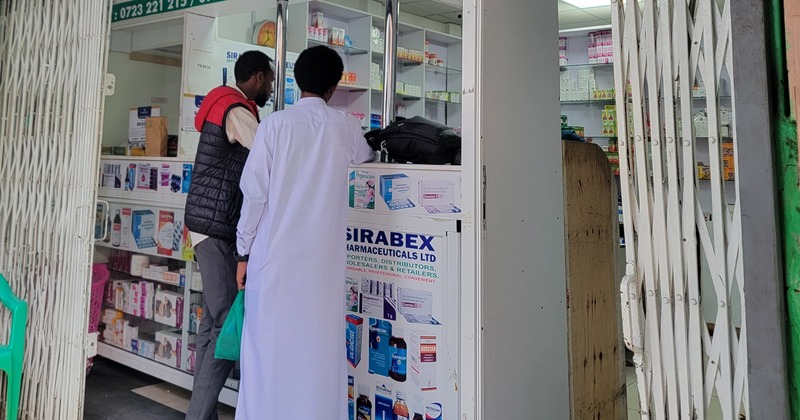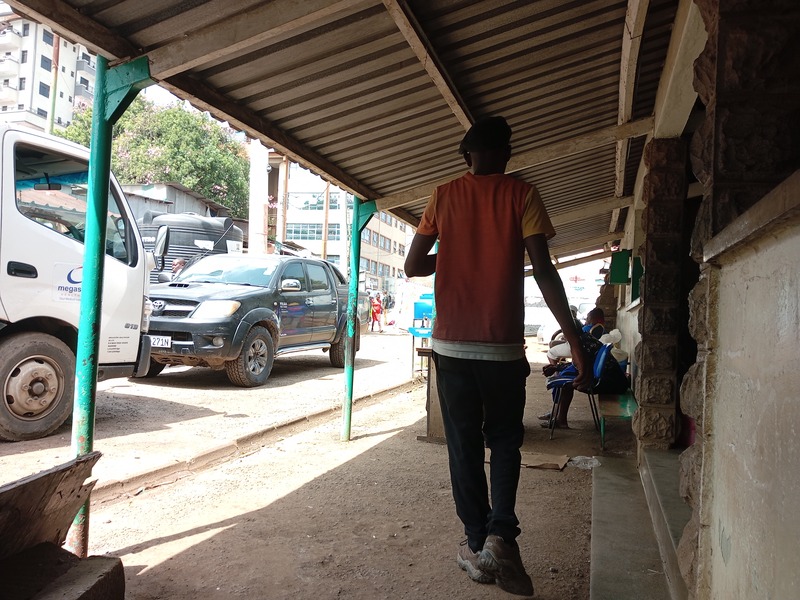Kenyan patients suffer as public hospitals grapple with medicine shortages

Most county health facilities are in dire need of a restock of painkillers, antibiotics, antidepressants, anti-cancer, anti-diabetic drugs and some medicines needed to perform life-saving surgical procedures.
Patients in Kenya's public hospitals are facing a severe shortage of medicines, exacerbated by months of limited access to essential drugs. This crisis stems from the Kenya Medical Supplies Authority (Kemsa) halting its deliveries to counties due to Sh3 billion debt
In Kamukunji Constituency, patients who rely on the public dispensaries and hospitals within the area are frustrated due to lack of medicine
More To Read
- Ruto targets faster healthcare access with KEMSA direct medicine deliveries to hospitals
- Senate flags 24 State agencies still performing county functions
- Ministry of Health announces measures to reduce maternal, newborn deaths
- Ruto orders KEMSA reforms to end drug shortages in public hospitals
- Drug shortage fears mount as distributors push for reinstatement of 21,000 blocked medicines
- MPs fault procurement authority for weak laws on COVID-19 tenders
Cynthia Wangare, a mother of three from Majengo, shares the ongoing trauma her family faces due to the healthcare crisis.
“The other day, my son was involved in an accident. I took him to the dispensary, where they dressed his wounds and gave us a list of medicines to buy. When I went to the pharmacy, the drugs were expensive, so I could only afford painkillers and had to leave the other prescribed medicines,” Wangare recounted. Fortunately, her son recovered without needing the additional drugs.
“There have been instances where you take a child to the hospital and all they give you is Panadol. This has been going on for years. Initially, we would get at least one or two drugs, but now we are often told to buy them, and occasionally we are only given Panadol and Piriton,” she explained.
Wangare noted that many people already have to pay for services like lab tests at the local dispensary. The situation has worsened with the added burden of buying medicine.
"This means many people will have to rely on painkillers without ever receiving proper treatment because of the lack of drugs at public facilities," she said.
Joyce Ambaya, a mother of one from Gikomba, said she went to a local public dispensary, only to be told to return another day.
“Many of us come to public hospitals because we can't afford private hospitals and the cost of medication. However, it's disheartening when you're given a long list of drugs to buy. I'm still feeling unwell since I couldn't afford the prescribed ones, so I asked the pharmacist for an alternative,” said Joyce.
Joyce shares a recent experience when she took her children to the hospital and had to buy the medicine herself. "As a hustler dealing with the high cost of living, adding the expense of drugs means I'll have medicine but no food. I appeal to the government to address this issue to help the common mwananchi," she said.
A spot check by the Eastleigh Voice on Friday revealed that some dispensaries have been experiencing drug shortages for years. Many locals only receive painkillers, even on normal days when there is no scarcity.
Drug shortage
Kemsa has revealed that at least 27 counties lack essential life-saving drugs. This is after the agency stopped supplying them due to a Sh2.88 billion debt owed by devolved units.
Following this, most county health facilities are in dire need of a restock of painkillers, antibiotics, antidepressants, anti-cancer, anti-diabetic drugs and some medicines needed to perform life-saving surgical procedures.
Some of the most affected counties are Nairobi, Kisumu, Nakuru, Mombasa, Homa Bay, Kakamega, Nyamira, Trans Nzoia, Busia, Tana River, Kilifi, Kwale, Garissa, Murang’a, Meru, West Pokot, Samburu, Turkana, Marsabit, Mandera, Migori, Kiambu, Isiolo, Kwale, Vihiga, Taita-Taveta and Tharaka-Nithi.
 A man walking to a local dispensary to seek treatment in Kamukunji Constituency. (Photo: Charity Kilei)
A man walking to a local dispensary to seek treatment in Kamukunji Constituency. (Photo: Charity Kilei)
Early this month, the Senate Health Committee ordered Kemsa to cease supplying medical supplies to indebted counties, noting that some counties have neglected payments to KEMSA for over two years.
"As a committee, we must resolve this issue today. Any county with debts older than 30 days must not receive supplies," stated Narok Senator Ledama Olekina.
Kemsa CEO Andrew Mulwa appearing before the committee, revealed that despite persistent reminders and threats to cut supplies, counties have failed to pay their dues.
The Senate Health Committee, led by Uasin Gishu Senator Jackson Mandago, was informed that Kemsa’s debts amounted to Sh3.03 billion as of May 8, 2024, with Sh2.08 billion outstanding for over 90 days. Notably, counties like Homa Bay and Nakuru have debts exceeding two years.
Mulwa highlighted that the ongoing supply halt could trigger a severe health crisis, given that Kemsa currently supplies 40 counties. He identified seven counties—Nairobi, Homa Bay, Taita Taveta, Makueni, Kakamega, Trans Nzoia, and Kisumu—as particularly notorious, noting that they have severed ties with Kemsa.
The CEO assured the committee that KEMSA has implemented aggressive debt collection strategies to enhance liquidity and ensure a continuous supply of health products.
According to the constitution, public entities, including counties, are mandated to procure health commodities from Kemsa.
Counties like Kilifi, Nairobi, Machakos, Kitui, and Tharaka Nithi are among the highest debtors, owing Sh276.62 million, Sh243.79 million, Sh117.41 million, Sh116.37 million, and Sh150.27 million, respectively.
Other counties with substantial debts include Homa Bay (Sh104.81 million), Vihiga (Sh94.42 million), Meru (Sh85.34 million), Mandera (Sh82.93 million), and Garissa (Sh82.73 million).
Counties with smaller debts include Kisumu (Sh328,008), Makueni (Sh74,879), Kiambu (Sh2.06 million), Kericho (Sh6.63 million), and Mombasa (Sh7.31 million).
The senators raised concerns over Kemsa’s debt recovery policy. "Why continue supplying counties that owe millions? No county has gone more than three months without receiving their exchequer releases," said Senator Olekina.
Murang’a Senator Joseph Nyutu said, "Even a shopkeeper wouldn’t allow a buyer to take items before clearing their debt. Kemsa must stop supplying these counties."
Mulwa acknowledged the agency's moral dilemma. "If we withdraw services and limit operations to prompt procurement only, we might as well be telling patients to go without drugs."
However, senators argued that Kemsa’s leniency has led to an overreliance on exchequer funds.
Top Stories Today












































